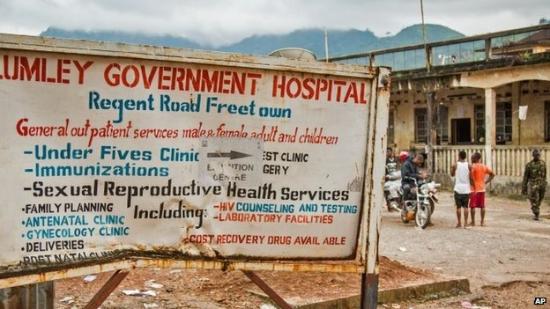BBC Dec. 22 2014
Spending cuts imposed by the International Monetary Fund (IMF) may have contributed to the rapid spread of Ebola in three West African states, UK-based researchers say.

Sierra Leone, along with Liberia and Guinea, have poor health facilities
It had led to "under-funded, insufficiently staffed, and poorly prepared health systems" in Sierra Leone, Liberia and Guinea, they said.
The IMF denied the allegation.
"A major reason why the Ebola outbreak spread so rapidly was the weakness of healthcare systems in the region, and it would be unfortunate if underlying causes were overlooked," said Cambridge University sociologist and lead study author Alexander Kentikelenis....
The IMF said in a statement that health spending in Guinea, Liberia and Sierra Leone had, in fact, increased in the 2010-2013 period.
Recent Comments